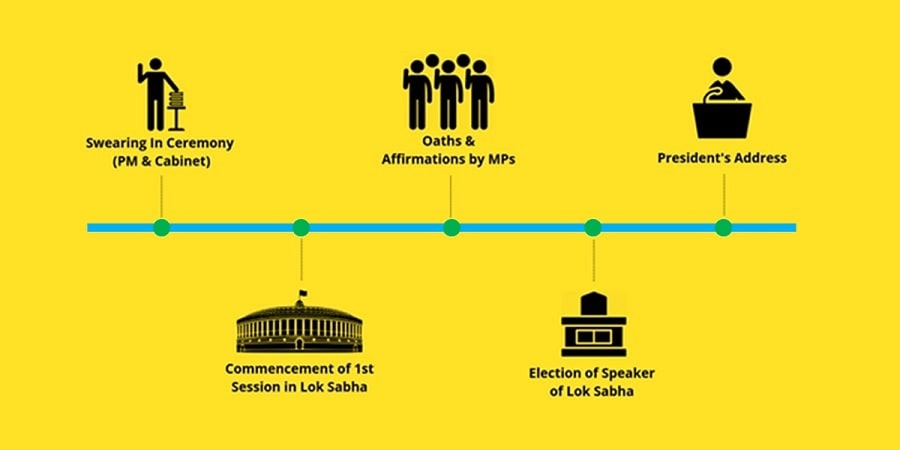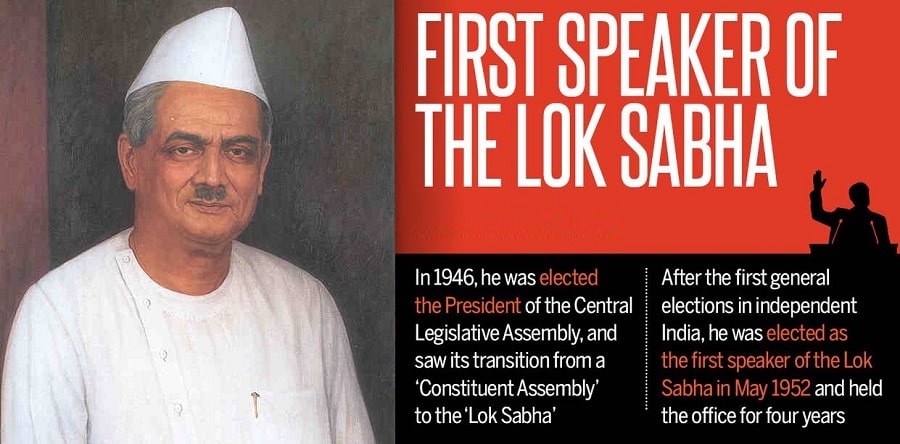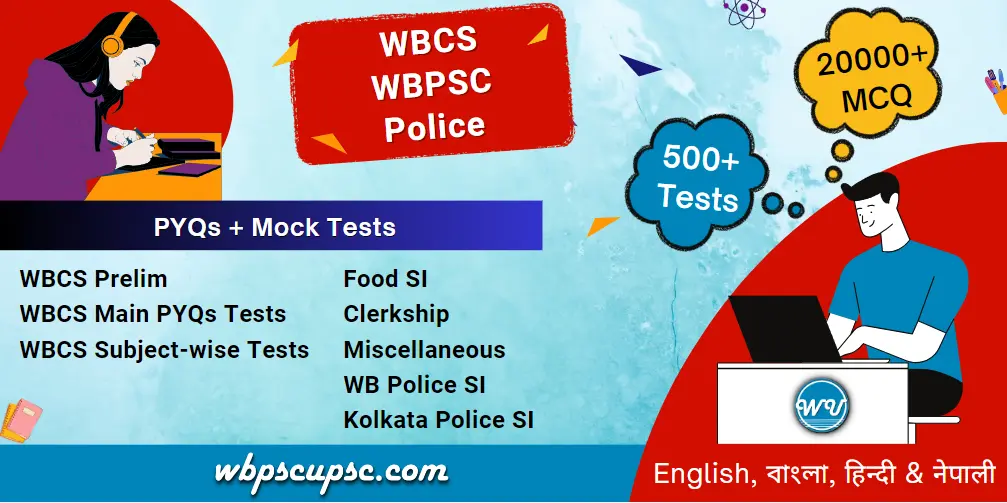Contents
>>>>>>
- Speaker and Deputy Speaker of Lok Sabha, do not make any separate oath or affirmation.
- Institutions of Speaker and Deputy Speaker of Lok Sabha originated in India in 1921 under Government of India Act of 1919.
- Those posts were called the President and Deputy President.
- Government of India Act of 1935 changed the name but it continues till 1947
- Frederick Whyte and Sachidanand Sinha were appointed as 1st Speaker and the 1st Deputy Speaker of the central legislative assembly.
- In 1925, Vithalbhai J. Patel became the 1st Indian and the 1st elected Speaker of the central legislative assembly.
- G V Mavalankar was the 1st Speaker of Lok Sabha.
- He was also the Speaker of Constituent Assembly (Legislative) as well as the provisional Parliament.
- 1st Vice-President & Chairman of Rajya Sabha was Sarvepalli Radhakrishnan.
- 1st Deputy Chairman of Rajya Sabha was S. V. Krishnamoorthy Rao.

>>>>>>>
Speaker of Lok Sabha
Election & Tenure
- The Speaker of Lok Sabha is elected by the Lok Sabha from amongst its members.
- Elected as soon as may be, after its first sitting.
- The office of the Speaker falls vacant, the Lok Sabha elects another member to fill the vacancy.
- The date of election of the Speaker of Lok Sabha is fixed by the President.
- Office will be vacated earlier in three cases:
- If he ceases to be a member of the Lok Sabha;
- If he resigns by writing to the Deputy Speaker of Lok Sabha.
- If he is removed by a resolution passed by a majority of all the members of the Lok Sabha. Resolution need 14 days’ advance notice.
- When a resolution for the removal of the Speaker is under consideration, he cannot preside at the sitting of the House but can take part and vote.
- Whenever the Lok Sabha is dissolved, the Speaker does not vacate his office and continues till the newly-elected lok Sabha meets.
Role, Powers & Functions
- Speaker is the head of the Lok Sabha, and its representative.
- He is the guardian of powers and privileges of the members, the House as a whole and its committees.
- Speaker is the principal spokesman of the House.
- His decision in all Parliamentary matters is final.
- The Speaker derives his powers and duties from three sources
- Constitution of India
- Rules of Procedure and Conduct of Business of Lok Sabha
- Parliamentary Conventions
- He maintains order and decorum in the House as his primary responsibility, and he has final power in this.
- Speaker is the final interpreter of the provisions of
- Constitution of India
- Rules of Procedure and Conduct of Business of Lok Sabha
- Parliamentary precedents, within the House
- He adjourns the House or suspends the meeting in absence of a quorum.
- Speaker does not vote in the first instance (Article 100).
- But he can exercise a casting vote in the case of a tie.
- He presides over a joint setting of the two Houses of Parliament.
- Speaker can allow a ‘secret’ sitting of the House at the request of the Leader of the House.
- In secret sitting no stranger can be present in the chamber, lobby or galleries except with the permission of the Speaker.
- Speaker of Lok Sabha decides whether a bill is a money bill or not and his decision on this question is final.
- He decides the questions of disqualification of a member of the Lok Sabha, on the ground of defection and its subject to judicial reviews as per Supreme Court order in 1992.
- He acts as the ex-officio chairman of the Indian Parliamentary Group which acts as a link between the Parliament of India and the various parliaments of the world.
- Speaker of Lok Sabha also acts as the ex-officio chairman of the conference of presiding officers of legislative bodies in the country.
- He appoints the chairman of all the parliamentary committees of the Lok Sabha and supervises their functioning.
- Speaker himself is the chairman of
- Business Advisory Committee
- Rules Committee
- General Purpose Committee.
Independence & Impartiality
- Speaker of Lok Sabha is provided with a security of tenure.
- He can be removed only by a resolution passed by the Lok Sabha by an effective majority.
- Motion of removal need support of at least 50 members.
- His salaries and allowances are fixed by Parliament and charged on the Consolidated Fund of India.
- His work and conduct cannot be discussed and criticized in the Lok Sabha except on a substantive motion.
- Speaker of Lok Sabha is placed at 7th rank, along with the Chief Justice of India.
- In Britain, the Speaker is strictly a non-party man.
- There is a convention that the Speaker has to resign from his party
Deputy Speaker of Lok Sabha
- Deputy Speaker of Lok Sabha is also elected by the Lok Sabha itself from amongst its members.
- He is elected after the election of the Speaker of Lok Sabha has taken place.
- The date of election of the Deputy Speaker is fixed by the Speaker.
- He resigns by writing to the Speaker
- The Deputy Speaker of Lok Sabha performs the duties of the Speaker’s office when it is vacant or absent
- Deputy Speaker of Lok Sabha is not subordinate to the Speaker.
- He is directly responsible to the House.
- If he is appointed as a member of a parliamentary committee, he automatically becomes its chairman.
- When the Speaker presides over the House, the Deputy Speaker of Lok Sabha is like any other ordinary member of the House.
- Since the 11th Lok Sabha, post of Deputy Speaker goes to the main opposition party.
>>>>>>

>>>>>>
Panel of Chairpersons of Lok Sabha
- Under the Rules of Lok Sabha, the Speaker of Lok Sabha nominates a panel of not more than ten chairpersons, from members
- Any of them can preside over the House in the absence of the Speaker or the Deputy Speaker.
- He holds office until a new panel of chairpersons is nominated.
- Member of the panel of chairpersons cannot preside over the House, when the office of the Speaker or the Deputy Speaker is vacant.
- During such time, President may appoint any member
- The elections are held, as soon as possible, to fill the vacant posts.
Pro Tem Speaker
- As provided by the Constitution, the Speaker of the last Lok Sabha vacates his office immediately before the 1st meeting of the newly elected Lok Sabha.
- President appoints a member of the Lok Sabha as the Pro Tem Speaker.
- Usually, the senior most member is selected for Pro Tem Speaker.
- Pro Tem Speaker presides over the first sitting of the newly-elected Lok Sabha.
- His main duty is to administer oath to the new members.
- Pro Tem Speaker also enables the House to elect the new Speaker.
- When the new Speaker is elected by the House, the office of the Pro Tem Speaker ceases.
Chairman of Rajya Sabha
- The vice–president of India is the ex-officio Chairman of Rajya Sabha.
- During any period when the Vice-President acts as President he does not perform the duties of the Chairman of Rajya Sabha.
- The Chairman of the Rajya Sabha can be removed from his office only if he is removed from the office of the Vice-President.
- As a presiding officer, the powers and functions of the Chairman of Rajya Sabha are similar to those of the Speaker in the Lok Sabha.
- Chairman of Rajya Sabha is not a member of the House.
- Chairman of Rajya Sabha also cannot vote in the first instance.
- He can use casting vote.
- The Vice-President cannot preside over a sitting of the Rajya Sabha when a resolution for his removal is under consideration.
- He can be present and speak in the House without voting.
- Salaries and allowances of the Chairman of Rajya Sabha are also fixed by the Parliament.
- They are charged on the Consolidated Fund of India
Deputy Chairman of Rajya Sabha
- The Deputy Chairman of Rajya Sabha is elected by the Rajya Sabha itself from amongst its members.
- The Deputy Chairman of Rajya Sabha vacates his office in any of the following three cases:
- If he ceases to be a member of the Rajya Sabha
- If he resigns by writing to the Chairman
- If he is removed by a resolution passed by a effective majority of the Rajya Sabha. Such a resolution need 14 days’ advance notice.
- The Deputy Chairman of Rajya Sabha perform as Chairman when
- Post of Chairman of Rajya Sabha is vacant or absent
- When the Vice-President acts as President
- Deputy Chairman of Rajya Sabha is not subordinate to the Chairman.
- He is directly responsible to the Rajya Sabha.
- When the Chairman of Rajya Sabha presides over the House, the Deputy Chairman is like any other ordinary member of the House.
- Salary and allowance of Deputy Chairman of Rajya Sabha are fixed by Parliament and are charged on the Consolidated Fund of India
Panel of Vice-Chairpersons of Rajya Sabha
- Under the Rules of Rajya Sabha, the Chairman nominates from amongst the members a panel of vice-chairpersons.
- Any one of them can preside over the House in the absence of the Chairman or the Deputy Chairman.
- Cannot preside over the House, when the office of the Chairman or the Deputy Chairman is vacant.
- During such time, President appoints someone from members
Secretariat of Parliament
- Each House of Parliament has separate secretarial staff of its own, though there can be some posts common to both the Houses.
- Their recruitment and service conditions are regulated by Parliament.
- The secretariat of each House is headed by a secretary-general.
- He is a permanent officer and is appointed by the presiding officer of the House.
Video Explanation
>>>>>>>




